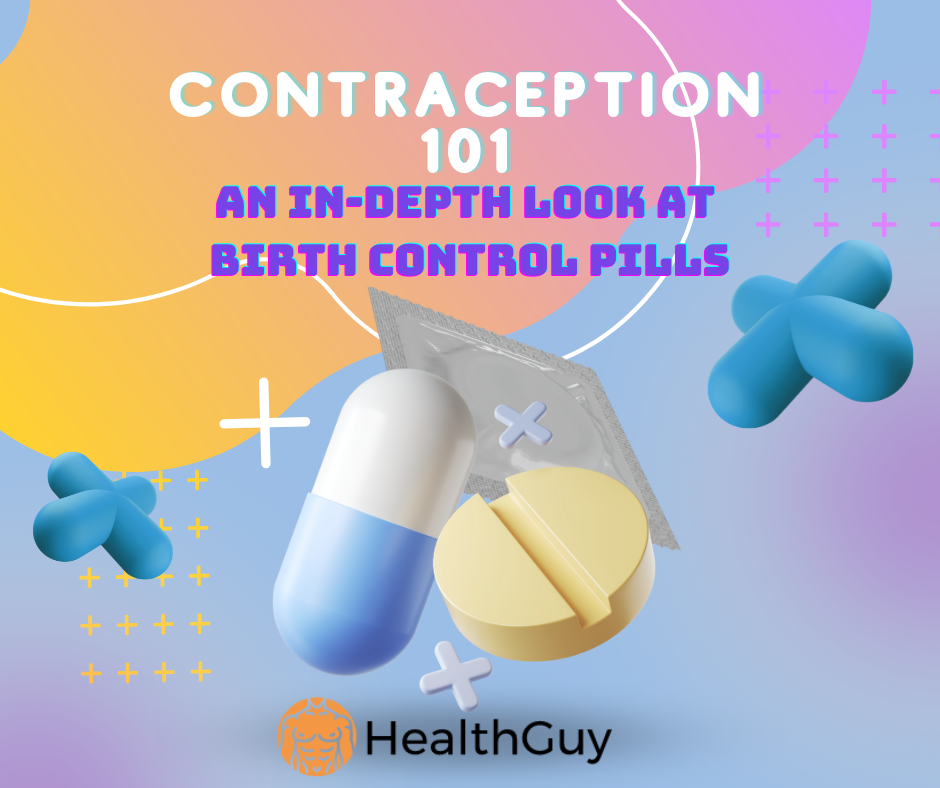
Contraception 101: An In-Depth Look at Birth Control Pills
When it comes to family planning, individuals have a range of options to consider. One popular method is birth control pills, commonly known as oral contraceptives. These pills have revolutionized reproductive health, providing individuals with a safe, convenient, and effective means to prevent unwanted pregnancies. In this article, we will explore birth control pills in detail, explaining how they work and what you need to know about them. So, let’s dive in and learn more about this widely used method of contraception.
What Are Birth Control Pills?
Birth control pills are prescription medications designed to prevent pregnancy. They contain synthetic hormones that mimic the effects of naturally occurring hormones in a woman’s body. The two primary types of birth control pills are combination pills, which contain estrogen and progestin, and progestin-only pills, also known as mini-pills.
How do the Birth Control Pills work?
Combination pills work by suppressing ovulation, which prevents the release of an egg from the ovaries. They also cause changes in the cervical mucus, making it thicker and more difficult for sperm to reach the egg. Additionally, these pills alter the lining of the uterus, reducing the chances of implantation of a fertilized egg. Progestin-only pills mainly function by thickening the cervical mucus and thinning the uterine lining.
Types of Birth Control Pills:
- Combination Pills: These are the most commonly prescribed birth control pills and are available in various formulations. They can be categorized as monophasic, biphasic, or triphasic, depending on the hormone levels throughout the menstrual cycle.
- Progestin-Only Pills (Mini-Pills): These pills do not contain estrogen and are often recommended for individuals who cannot take combination pills due to medical reasons. Progestin-only pills need to be taken at the same time every day to maintain their effectiveness.
Benefits of Birth Control Pills:
- Highly effective: When taken correctly, birth control pills offer over 99% protection against pregnancy.
- Regulated menstrual cycle: Birth control pills can help regulate menstrual cycles, making them more predictable and reducing menstrual pain.
- Reduced risk of certain health conditions: Using birth control pills has been associated with a reduced risk of ovarian and endometrial cancers and benign breast disease.
- Improved acne and menstrual symptoms: For some individuals, birth control pills can help alleviate acne breakouts and reduce symptoms associated with premenstrual syndrome (PMS).
Considerations and Potential Side Effects:
While birth control pills are generally safe and well-tolerated, they may not be suitable for everyone. It is essential to consult with a healthcare provider before starting any contraceptive method. Some common considerations and potential side effects include:
- Nausea, breast tenderness, and headache: These symptoms are typically mild and often resolve within the first few months of pill use.
- Irregular bleeding: Some individuals may experience breakthrough bleeding or spotting, especially in the first few months of pill use.
- Health risks: Certain medical conditions, such as blood clotting disorders, liver disease, or a history of breast or uterine cancer, may require alternative contraceptive methods.
- Medication interactions: Some medications, such as certain antibiotics and anticonvulsants, can reduce the effectiveness of birth control pills. It is crucial to inform healthcare providers about all medications being taken.
Choosing the Right Pill and Starting the Regimen:
Since birth control pills come in different formulations, it is essential to work with a healthcare provider to find the most suitable option. Factors such as individual health, medical history, lifestyle, and preferences will be considered when selecting the appropriate pill. Starting the regimen involves taking the first pill on the recommended day of the menstrual cycle, followed by daily pill intake as instructed.
Conclusion:
Birth control pills have empowered individuals by providing a reliable and convenient method of contraception. By understanding how these pills work, the different types available, their benefits, and potential side effects, individuals can make informed decisions about their reproductive health. Remember, it is essential to consult with a healthcare provider to determine the most appropriate contraceptive method based on individual needs and circumstances.
